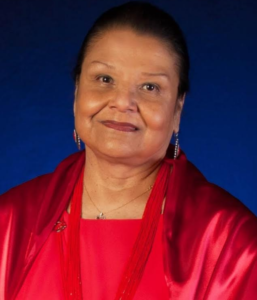The occurrence of the COVID-19 pandemic, particularly in the areas where a stay-in-place order is enacted, has impacted the lives of American Indian and Alaska Natives (AI/AN).

It is a time when support from others is needed, but not possible in direct contact, which is frustrating for the AI/AN as they are communal societies which emphasize a higher status for community involvement. This frustration is heightened by the cancellation of cultural, ceremonial, and social events which bring AI/AN together for communal spiritual and social support. In addition to the enjoyment of gathering to celebrate culture, some events are a source of income for both individual vendors and tribal nations. Thus, cancellation of social events, such as powwows, conferences, art exhibitions, and other community gatherings, has severely impacted the communal cultural way of life.
Stay Connected Electronically
AI/AN response to the loss of the face-to-face communal aspect of the culture has changed by the increase in communication electronically. Tribes are able to share accurate information regarding the health crisis, difficulties they experience such as lack of child-care, loss of employment, and other tribal programs. Also, they share accurate information in regard to the COVID-19 pandemic, encourage prayers, traditional medicines, and preparation of traditional foods. In addition, they are able to provide sources to locate traditional supplies which are often sold, traded or gifted at powwow and social gatherings.
Electronic communication is also used to encourage social distance powwows, watch parties, word and name games. Another cultural way of being that has emerged, is humor. It is not that their concerns and difficulties no longer exist; but humor has always been a coping skill. Humor is a way of temporarily lifting the weight of concerns and giving a short break to the seriousness of immediate and future issues. Thus, the sharing of toilet paper jokes.
Coping
COVID-19 has demanded AI/AN’s find ways to cope. Volunteering during a time of crisis allows an individual to take action to assist others which provides a feeling of being part of the resolve. Individuals may choose to sew medical masks, make trips to the store and/or pharmacy for elders, participate in food drop offs, develop a phone tree to call and lift spirits and dissipate isolated, tutor electronically, develop games for children, and engage in future planning.
In addition, artistry is significant in the AI/AN culture and provides an expression of, distraction from, and a way to monitor life experiences. It carries tribal energy with memories of historic storytelling, songs, and prayers for healing. Art allows the inclusion of the body, mind, and spirit and offers the selection of the medium in which to work. Also, offers the opportunity to create designs, choose colors, for self-expression. Art can relieve stress and improve the quality of life.
COVID-19 has impacted the world’s population which includes AI/AN who are living on and off reservation land, in the military, are medical personnel, and on the political front working for change.
The AI/AN communities have a resiliency and will continue to be creative and successful in their approach to coping and surviving this deadly pandemic.
Suzanne L. Cross (Saginaw Chippewa Tribe). PhD, ACSW, LMSW, LLC, is an Associate Professor Emeritus at Michigan State University (MSU). In addition to teaching at MSU, she taught at Arizona State University and other institutions. Dr. Cross has done extensive research on American Indian boarding schools, which resulted in historical trauma.
More Stories Like This
Jesse Jackson Changed Politics for the BetterNative News Online at 15: Humble Beginnings, Unwavering Mission
From the Grassroots Up, We Are Strengthening the Cherokee Nation
Friday the 13th: When Superstition Proves More Powerful Than Law
Congress Must Impose Guardrails on Out-of-Control ICE
Help us defend tribal sovereignty.
At Native News Online, our mission is rooted in telling the stories that strengthen sovereignty and uplift Indigenous voices — not just at year’s end, but every single day.
Because of your generosity last year, we were able to keep our reporters on the ground in tribal communities, at national gatherings and in the halls of Congress — covering the issues that matter most to Indian Country: sovereignty, culture, education, health and economic opportunity.
That support sustained us through a tough year in 2025. Now, as we look to the year ahead, we need your help right now to ensure warrior journalism remains strong — reporting that defends tribal sovereignty, amplifies Native truth, and holds power accountable.
 The stakes couldn't be higher. Your support keeps Native voices heard, Native stories told and Native sovereignty defended.
The stakes couldn't be higher. Your support keeps Native voices heard, Native stories told and Native sovereignty defended.
Stand with Warrior Journalism today.
Levi Rickert (Potawatomi), Editor & Publisher
